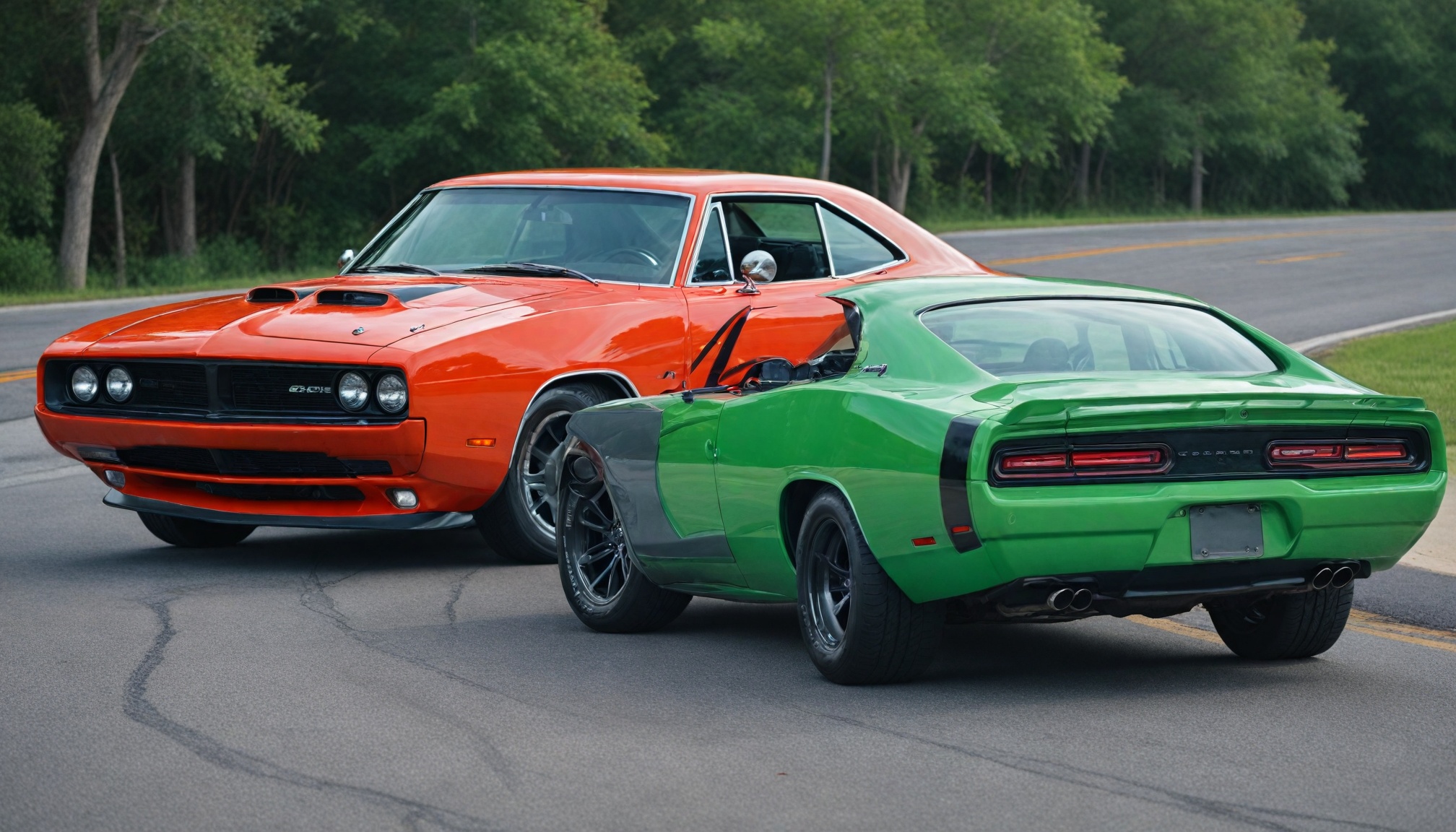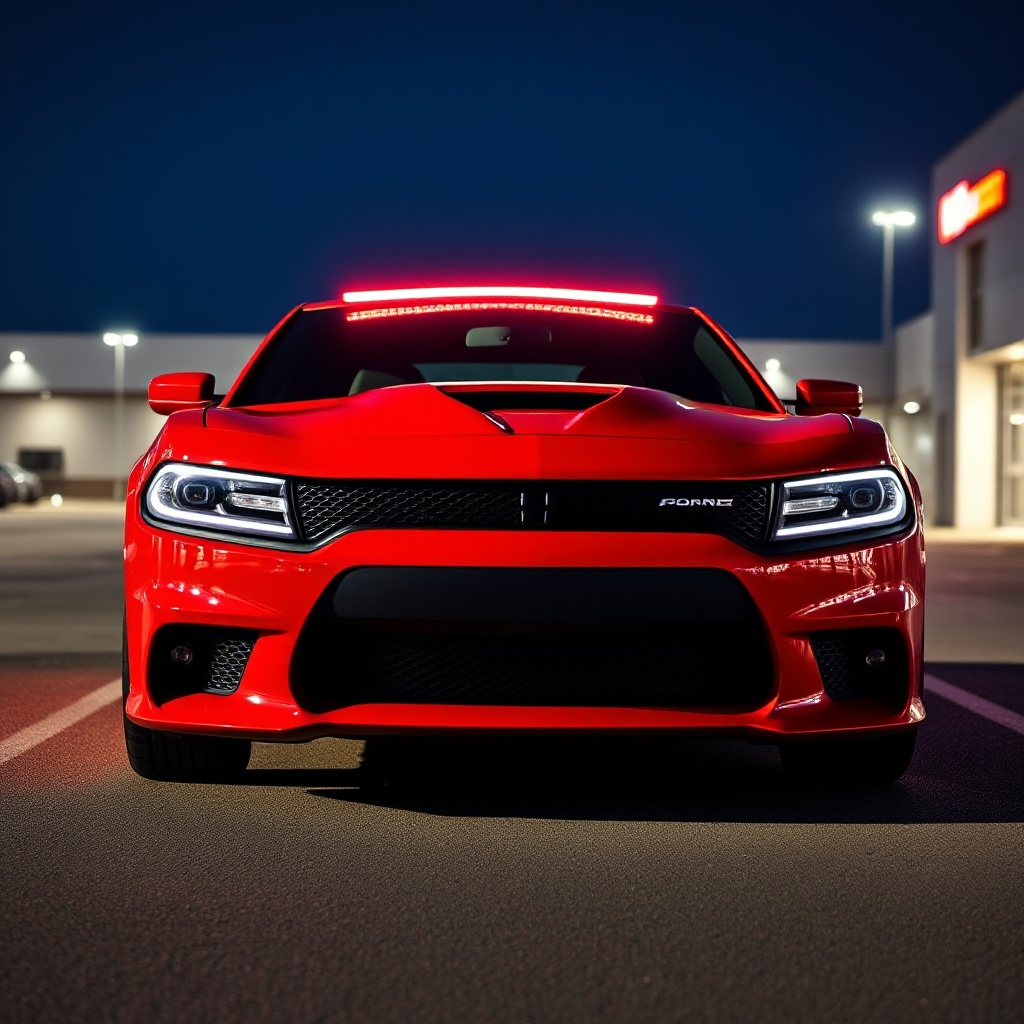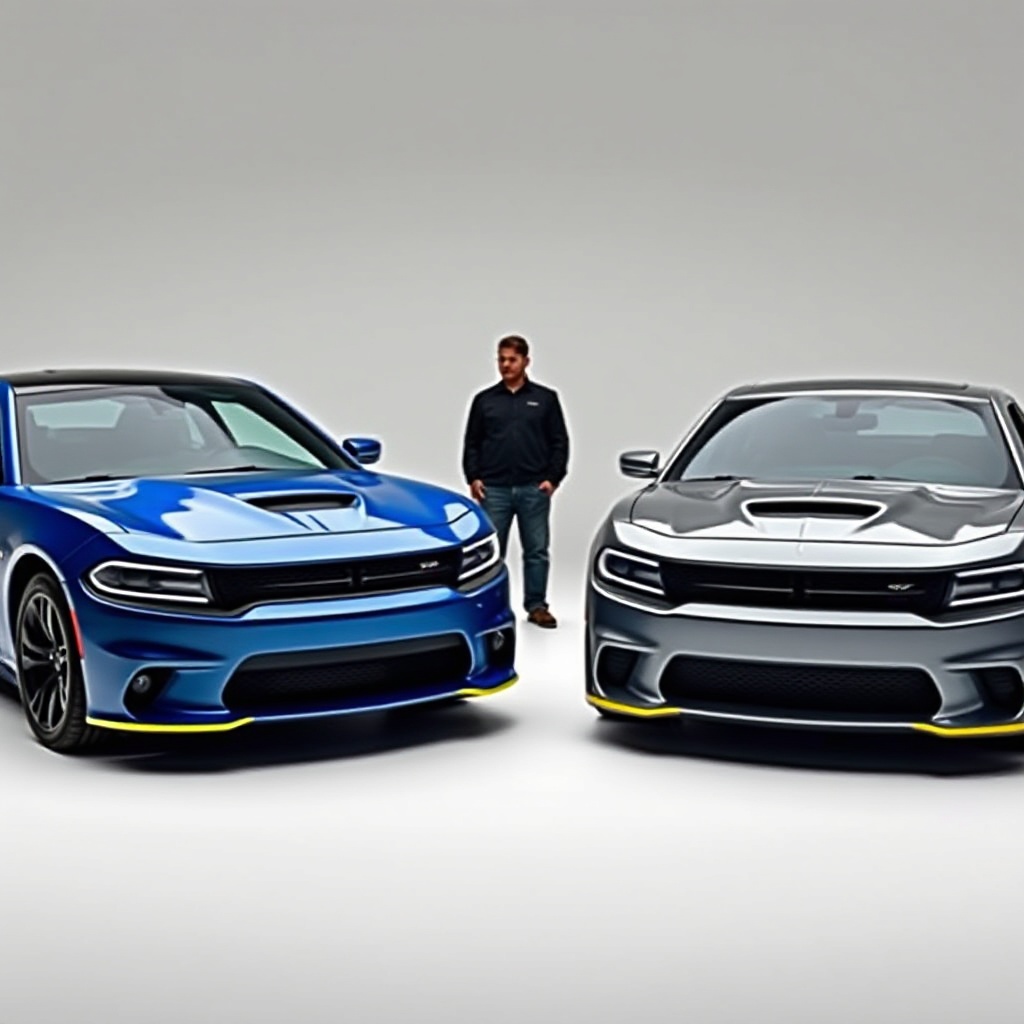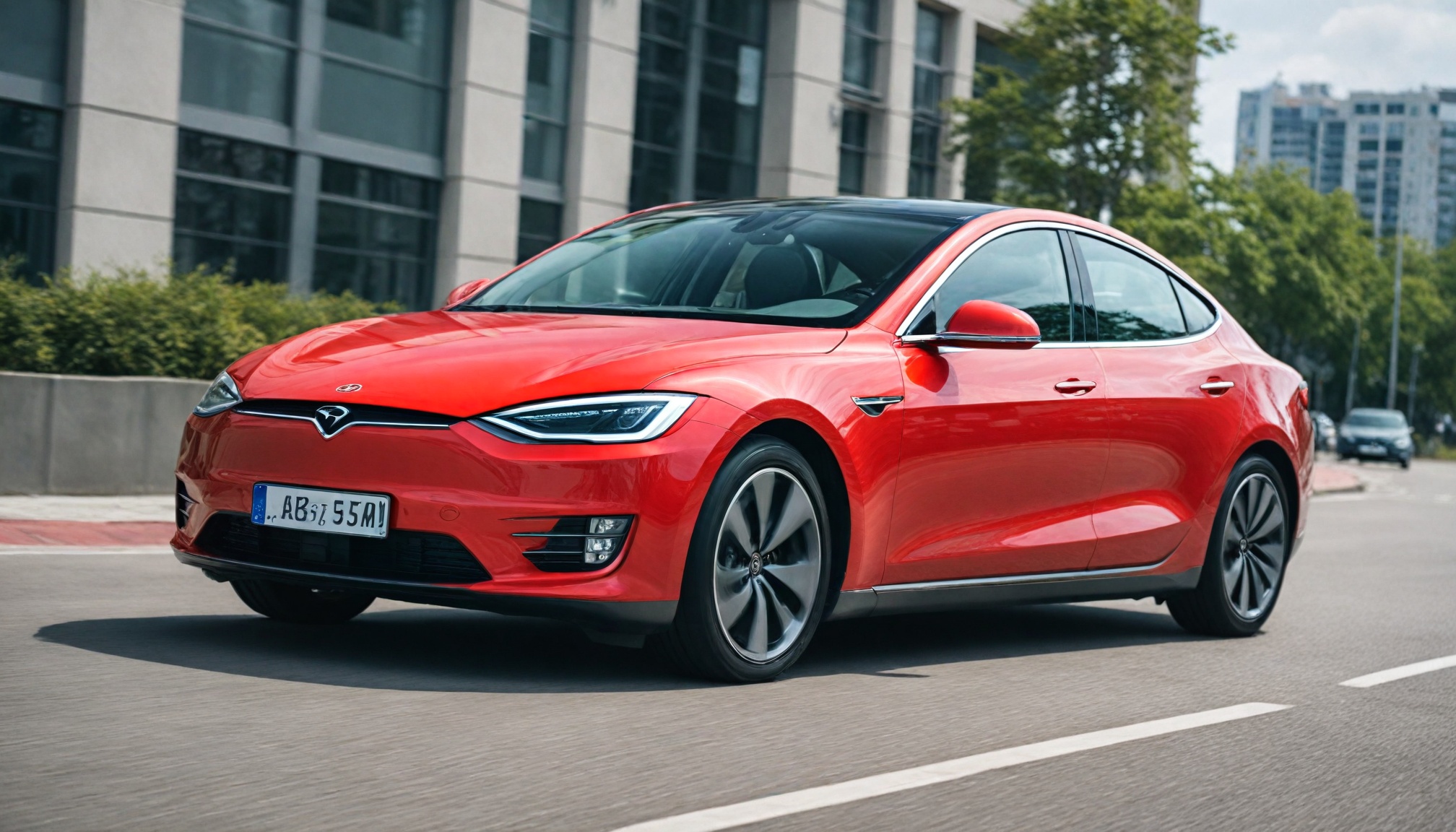
Dodge discontinues Charger Daytona R/T EV after poor sales, with dealers slashing prices by 45%. The electric muscle car failed to deliver the experience enthusiasts demand.

Drivetech Partners
Dodge has officially pulled the plug on its Charger Daytona R/T electric vehicle for the 2026 model year, marking a significant setback in the automaker's ambitious electrification plans. With dismal sales figures and dealers slashing prices by up to 45% to move unsold inventory, the electric muscle car experiment has proven that transitioning iconic performance brands to battery power faces steeper challenges than anticipated.
Key Takeaways
Dodge sold only 2,115 Charger Daytona EVs across North America in Q1 2025, with over 3,500 unsold R/T models sitting on dealer lots
Dealerships have been forced to offer discounts up to 45% on $61,590 R/T models, with some listed as low as $34,184
The electric Charger failed to deliver the visceral experience and sound that traditional muscle car enthusiasts demand
Dodge is pivoting to focus on the higher-powered Scat Pack EV and new combustion-powered SIXPACK models with the Hurricane engine
The failure signals broader industry challenges in converting enthusiast segments to electric powertrains

The Electric Muscle Car That Couldn't
The Dodge Charger Daytona R/T electric vehicle launched with high expectations but has now been officially discontinued for 2026. With only 2,115 units sold across North America in the first quarter of 2025 (1,947 in the US and 168 in Canada), the experiment in electric muscle cars has fallen flat. The situation became untenable with reports of over 3,500 R/T models sitting unsold on dealer lots, forcing Dodge to cut its losses and rethink its strategy.
The 496-horsepower entry-level EV with an original MSRP of $59,995 faced significant consumer resistance despite offering respectable performance with a 0-60 mph time of 4.7 seconds. The numbers tell a stark story about market rejection, with dealerships across the country forced to take drastic measures to move inventory.
Price Slashing Reveals Market Rejection
The extent of the Charger Daytona R/T's market failure is most evident in the massive discounting seen at dealerships nationwide. Models that originally retailed for $61,590 have been listed for as low as $34,184 in Florida and $39,055 in Texas, representing discounts of up to 45%. These fire-sale prices tell the tale of a product that simply didn't connect with its intended audience.
Compounding the problem, new tariffs on non-US-made components further complicated the pricing and profitability equations for Dodge. The combination of low sales volumes, high inventory, and mounting financial pressure left the automaker with little choice but to pull the plug on the entry-level electric Charger.
Why Enthusiasts Rejected the Electric Charger
Reviews of the Charger Daytona R/T were lukewarm at best, with many critics pointing to poor handling, mediocre software, and—perhaps most damning—a failure to capture the spirit of a classic muscle car. The consensus among many automotive journalists was that it succeeded neither as a muscle car nor as an EV, falling into an uncomfortable middle ground that satisfied no one.
Traditional muscle car enthusiasts have shown strong resistance to electric powertrains despite manufacturer marketing efforts. The absence of a roaring V8 engine and the visceral, raw experience that defines muscle cars proved to be insurmountable obstacles for many potential buyers. The emotional connection that drives purchase decisions in this segment simply wasn't there.

Dodge's Revised Strategy: Pivoting to Higher-End EVs and New ICE Models
With the R/T's discontinuation, Dodge's electric muscle car lineup now consists solely of the higher-powered Daytona Scat Pack EV, which boasts 670 hp and a 0-60 time of 3.3 seconds. Industry sources suggest the Scat Pack will receive a price cut from its current $73,190 starting point to boost demand, acknowledging that even the more powerful variant faces market resistance.
Looking ahead, Dodge is developing a four-door electric Daytona Scat Pack to expand its electric offerings while simultaneously preparing to launch new combustion-powered Charger SIXPACK models. These will feature Dodge's twin-turbo inline-six "Hurricane" engine, available in two power outputs: 550hp for performance models and 420hp for standard versions.
The SIXPACK lineup, which includes both two-door and four-door variants, will feature an 8-speed 880RE automatic transmission and all-wheel drive. Production is set to begin in the second half of 2025, representing a significant pivot back to internal combustion after Dodge's ambitious EV transition plans.
Competitive Disadvantages Against EV Performance Rivals
Part of the Charger Daytona EVs' struggle can be attributed to how they stack up against established electric performance cars. Here's how the Dodge offerings compare to key competitors:
Tesla Model S Plaid: 1,020 hp, 0-60 in 1.99 sec, $94,990, 348-mile range
Dodge Charger Daytona Scat Pack: 670 hp, 0-60 in 3.3 sec, $73,190, 241-mile range
Ford Mustang Mach-E GT: 480 hp, 0-60 in 3.8 sec, $53,995, 270-mile range
These comparisons reveal that the Charger EVs lagged in critical metrics like range and performance-per-dollar value. While the Scat Pack offered impressive acceleration, its limited range and high price point positioned it awkwardly against both more affordable and more capable competitors.
Hurricane Engine Powers Dodge's Future
As Dodge recalibrates its EV plans, the twin-turbo inline-six Hurricane engine emerges as the centerpiece of its revised strategy. Available in two power outputs—550hp for performance models and 420hp for standard versions—this new engine platform represents Dodge's bet that traditional power sources still have a place in the muscle car segment.
All SIXPACK models will feature the 8-speed 880RE automatic transmission and all-wheel drive, aiming to deliver the performance customers expect from the Charger name. This move back toward internal combustion after ambitious EV transition plans signals Dodge's recognition that the market isn't ready for an all-electric muscle car lineup.
Industry-Wide Implications for Muscle Car Electrification
The failure of the Charger Daytona R/T signals broader challenges for automakers transitioning iconic performance brands to EVs. Despite manufacturers' ambitious electrification roadmaps, traditional enthusiast segments remain resistant to the change, valuing the unique character of combustion engines—particularly in vehicle categories defined by their sound and driving experience.
Performance, pricing, emotional appeal, and brand heritage continue to be decisive factors in the muscle car segment. Dodge's experience has led the company to emphasize flexibility in its powertrain strategy rather than an all-in EV approach, a lesson other manufacturers with heritage performance brands may need to heed.
Balancing Tradition and Innovation in Performance Vehicles
Dodge's experience highlights the tension between maintaining brand identity and embracing new technology. Muscle car buyers value tradition, sound, and visceral experience—elements that EVs struggle to authentically replicate. The market signals suggest a gradual transition may be more successful than an abrupt pivot to all-electric offerings.
For automakers, the challenge will be developing EVs that honor and enhance traditional performance values rather than simply replacing them. Creating electric vehicles that can capture the emotional connection muscle car enthusiasts seek while delivering the environmental benefits of electrification remains the holy grail—one that, so far, has proven elusive.
Sources
Electrek - Dodge is scrapping the cheaper Charger EV, but the Scat Pack model will get a price cut
Carscoops - It's Official, Dodge Is Killing The Electric Charger Daytona R/T
MoparInsiders - Dodge's electric Charger Daytona faces sales struggles in early 2025




